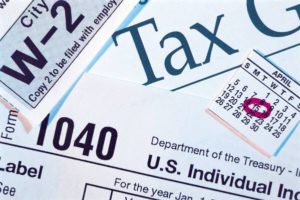 Today’s top story: Time your credit card application this bonus-friendly season. Also in the news: Debt and housing costs are making it harder to save for retirement, a 2019 holiday shopping report, and how to spend your extra FSA money.
Today’s top story: Time your credit card application this bonus-friendly season. Also in the news: Debt and housing costs are making it harder to save for retirement, a 2019 holiday shopping report, and how to spend your extra FSA money.
Time Your Credit Card Application This Bonus-Friendly Season
‘Tis the season for bonuses.
Debt, Housing Costs Make It Harder to Save for Retirement, Americans Say
An uncertain future.
2019 Holiday Shopping Report
Will a looming recession curb holiday shopping?
How to Spend Your Extra FSA Money
Don’t leave money on the table.
 Today’s top story: 5 ways to take command of military discounts. Also in the news: The best credit cards to use when buying airfare, Black Friday strategies that actually work, and how to spend your retirement savings without triggering a tax penalty.
Today’s top story: 5 ways to take command of military discounts. Also in the news: The best credit cards to use when buying airfare, Black Friday strategies that actually work, and how to spend your retirement savings without triggering a tax penalty. Today’s top story: Speedier payment systems could curb your costs. Also in the news: Black Friday vs. Prime Day: How they stack up, 5 signs an online loan is a debt trap, and everything you need to know about your 2020 taxes.
Today’s top story: Speedier payment systems could curb your costs. Also in the news: Black Friday vs. Prime Day: How they stack up, 5 signs an online loan is a debt trap, and everything you need to know about your 2020 taxes. Today’s top story: 5 signs an online loan is a debt trap. Also in the news: 6 surprising sales to shop on Black Friday, secrets of a Black Friday shopper, and 5 common financial fears and how to conquer them.
Today’s top story: 5 signs an online loan is a debt trap. Also in the news: 6 surprising sales to shop on Black Friday, secrets of a Black Friday shopper, and 5 common financial fears and how to conquer them.